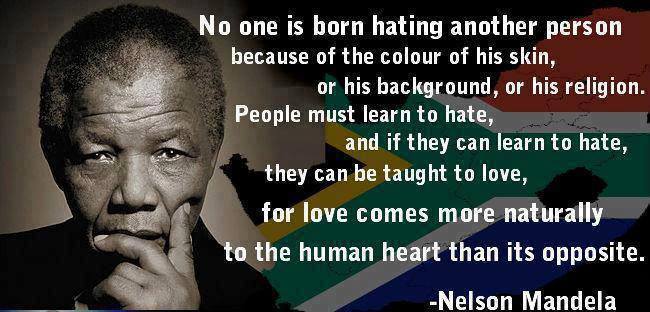FIFA (Federation International Football Association) is one of the biggest advocates on the fight against racism. FIFA president, Joseph S. Bladder, is one of the main figures behind the scenes in this battle. In 2002, FIFA introduced World Days Against Discrimination and Racism in which the president said, "Racism is a blight that we must eradicate forcefully and resolutely." He also said, "Football has a unifying power that can and must be used to combat discrimination of all kinds.”
 |
| FIFA President, Joseph S. Bladder |
In 2006, FIFA officially announced their Say No to Racism campaign in which they released large banners before matches at the World Cup that simply said, "Say No to Racism." Below are some pictures of the banners:
An Italian club, AC Milan, supports the fight against racism
Another key figure in the fight is South African, Nelson Mandela. He was imprisoned for 27 years because he fought for racial equality and challenged the South African government. Mandela died on December 5, 2013. He was often known as "Madiba" in the world of football. May he rest in peace.
Didier Drogba, a footballer from Ivory Coast, shows his support for Madiba. May he always be remembered.
FIFA released a campaign commercial so viewers could understand the problem and once and for all Say No to Racism.
With everyone's effort and cooperation, we can finally end this massive problem and live hand in hand with each other. We know that racism is morally oppressive and destructive for your health which should be enough. Please, we need to unite and say no.







